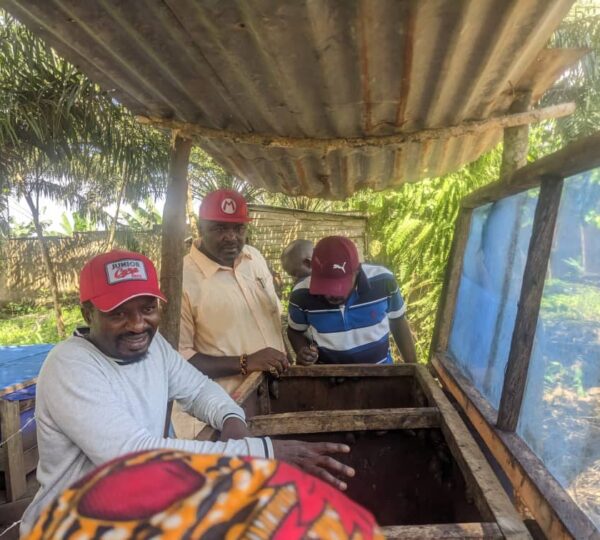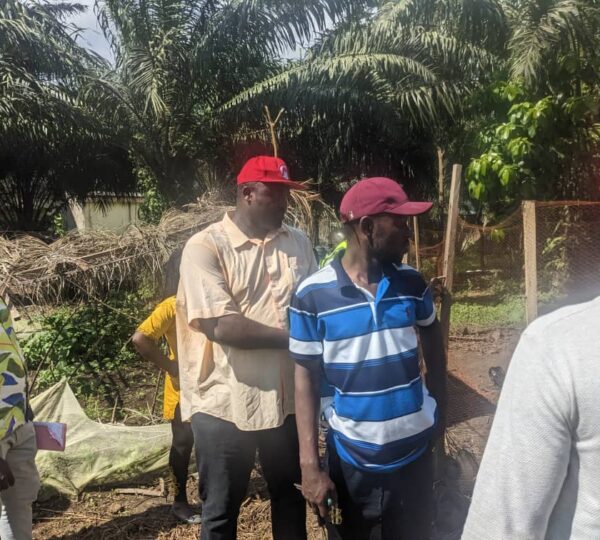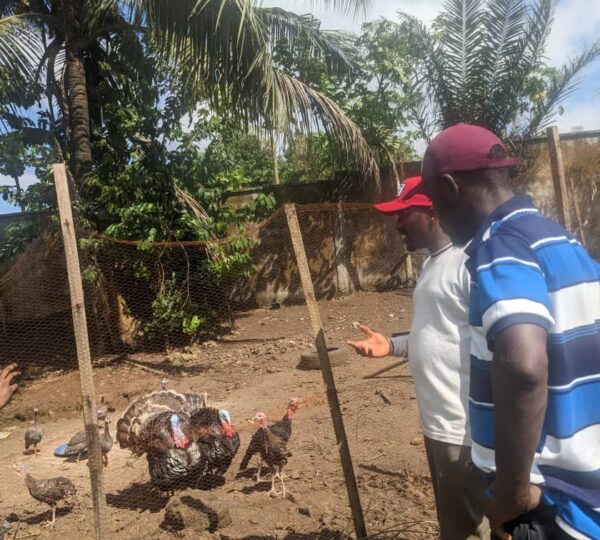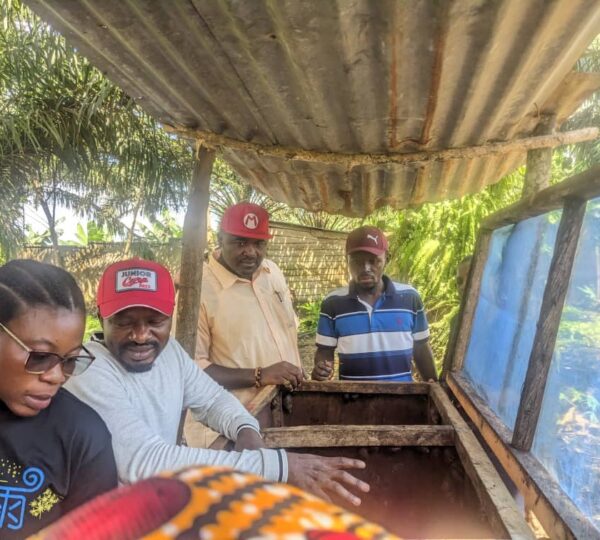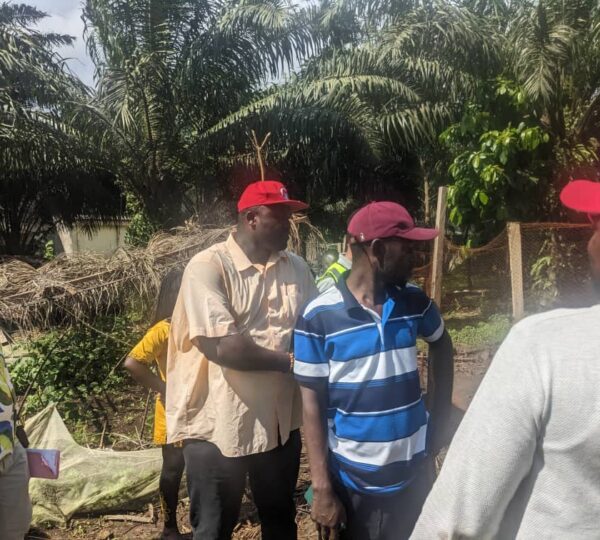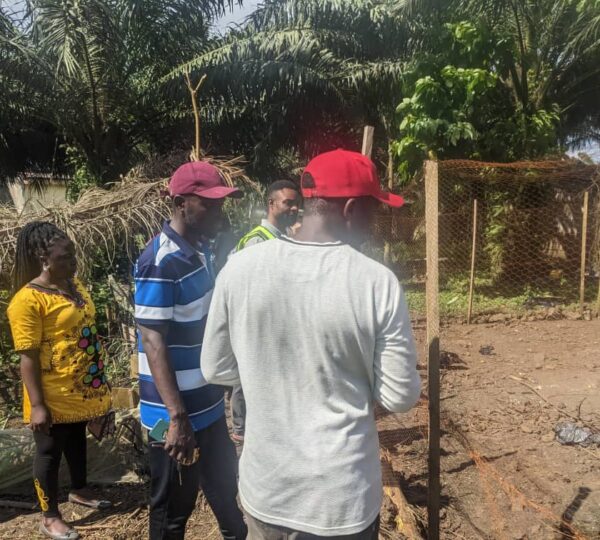Mission / Vision
Our mission is to trains local communities in the need to produce organic farm products ,and reduce the use of chemicals that produce air and environmental pollution ..by helping them with adequate training ,equipping them with modern farm tools supporting them from pilot to maturity stages of their agricultural activities
Overview
Agriculture is the leading source of pollution in many countries. Pesticides, fertilizers and other toxic farm chemicals can poison fresh water, marine ecosystems, air and soil. They also can remain in the environment for generations.
Feeding the world is hard work. In order to create enough food to feed the world’s growing population, agronomists have determined best practices throughout the past century. And, as with any science, best practices improve with better information over time. Sustainable agronomy can lead us into a future where feeding the world is balanced with protecting, preserving, and even regenerating our farmland.
In the past, changing farming practices focused on increasing yield to meet growing demands. In some cases, crop yields have doubled. But some of these practices have also had negative environmental impacts. Some of the adverse effects include:
Degraded soil and water resources
Elevated greenhouse gas levels
Loss of ecosystem services
Altered biogeochemical cycles
Recent advances in agronomy offer the promise of a more environmentally-sustainable agricultural system. Adoption of these key agronomic practices can reduce the unintended consequences of modern agriculture on the environment.
The major negative effects included:
✓Degraded soil and water resources
✓Elevated greenhouse gas levels
✓Loss of ecosystem services
✓Altered biogeochemical cycles
SENIDEV
Trains farmers on the modern farm practices methods for effective implementation “They were just at the right place at the right time”? The nutrient management practice in agriculture called “4R” is based on that same idea. 4R nutrient management helps the environment, the grower, and yields. It stands for
Right nutrient application rates
Right application methods
Right application timing
Right nutrient source
Two farms are seldom the same. The principles of 4R suggest that each farm, and sometimes each section of a farm, might have its own management plan. Technology (more below) is helping growers determine more information about their fields, quicker. It allows them to give specific doses of fertilizer based on each section of the field. This can save the grower time and money and be better for the environment.
SENIDEV
Promote the Adoption of no-till/zero tillage to be implemented by the farmers
Centuries ago, growers started tilling their land. This became more effective over the last few decades as farm equipment was developed. Tilling helps with weed control and loosens the soil by inverting and mixing the soil layers. It also controls soil-borne pests and captures moisture from rain. However, research has found that with herbicides to control weeds, limited tilling can be a better practice on many farms. Minimally-disturbed soil can be healthier and more productive than tilled soil. This, of course, will depend on the crop grown, the soil type, and how hilly or flat the land is.
No-till is a system of farming with zero or minimal disturbance to the soil. But another option is strip-till. In this type of system, growers only till a small area, several inches wide—just enough to help with seed planting.
Low or no-till practices help reduce soil erosion. It also builds soil by increasing the amount of carbon (in the form of organic matter) in the soil. This is called carbon sequestration. More soil organic matter can improve soil health by holding more moisture and plant nutrients, as well as attracting and feeding beneficial insects, microbes, and other life in the soil.
Another benefit to less tilling is the reduced use of fossil fuels. The equipment needed for tilling uses petroleum products like oil and gas, contributing to air and water pollution. It could also contribute to global warming
SENIDEV trains on the adoption of new technology
Adoption of robotics and automation technology has the potential to reduce environmental impacts. Drones can “scout” the fields in ways impossible for human labor. In just an hour, a drone might collect as much information as an entire day of a grower’s scouting. Autonomous tractors can be programmed to deliver the right nutrient following the 4R practices. Robotic arms, satellite information systems, field sensors, artificial intelligence, and data analytics offer the potential for a more efficient and productive agricultural system.
Our impacts
On the 18/10/2024
SENIDEV together with partners donated farm tools ,and modern cooking stoves to some farmers at the Limbe farmers training center .
Promoting their agricultural and implementing modern agricultural practices that would produce organic products for climate change adaptation .
Need for sponsorship and partnership with SENIDEV
SENIDEV is committed to promote agriculture and modern farm practices that would produce organic products and this is a foundation of the United Nations SDG2 focuses on ending hunger, achieving food security and improved nutrition and promoting sustainable agriculture.
We however have imminent plans to support these farmers with basic farm inputs, machines and farm tools.
Conclusion
Agriculture is the very important for community development because it create jobs and improve livelihood of the population and SDG2 focuses on ending hunger, achieving food security and improved nutrition and promoting sustainable agriculture.
CALL TO ACTION
CALL TO ACTION
If you are interested in supporting SENIDEVs initiative, please consider making a donation or becoming a sponsor for this mission. Your generosity can transform lives and ensure that these farmers in the communities and villages receive the support they deserve. Let’s work together to make a difference. Know us more at website: senidev.org.
Email: info@senidev.org
Email: sustainableenergyforinclusivd@gmail.com
Contact us: +237654725838

